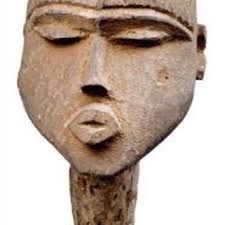What are magnesium supplements?














What are magnesium supplements?
You may be wondering if you need to add magnesium supplements into your daily routine. Magnesium is a mineral our bodies use for the process of converting food into usable energy and many other biochemical reactions, from DNA synthesis to blood pressure regulation.
Provided by Live Science null
Our bodies store magnesium in our bones, where the body accesses it through a cycle of bone mineralisation and demineralisation. It is important for us to replenish our body’s magnesium supply in order to keep ourselves healthy and keep our biochemical processes working smoothly.
So, when might you need to invest in magnesium supplements? Here, we’ll look at the dietary routes you can take first, how the body uses magnesium, and how magnesium deficiency might affect the body.
Why do we need magnesium?
According to Cristy Dean, registered dietician and owner of Fettle and Bloom, magnesium is important for many processes in the body. “This includes regulating muscle and nerve function, blood sugar levels, blood pressure and making bone, protein and DNA,” she says. “Magnesium affects the hypothalamus which regulates stress hormones. If magnesium levels are optimal this can help manage stress and anxiety.”
A review in the Nutrients journal found that chronic stress and anxiety depletes the body’s stores of magnesium, which means the body is hit harder by stress. Our bodies end up in a cycle of magnesium depletion due to stress, then cannot handle the stress due to the reduced magnesium levels. This creates a poor stress response as a result, causing more stress in turn. Stress reduces our magnesium stores, and we need magnesium to deal with stress, so you can see how this can cause problems for those with chronic stress and anxiety.
Another study in Magnesium Research journal found that magnesium supplementation can be helpful in the treatment of mild anxiety and anxiety related to premenstrual syndrome in women.
Magnesium also interacts with the sleep hormone melatonin and the neurotransmitter GABA, which are responsible for proper and restful sleep. A review in the journal of Biological Trace Element Research indicated that magnesium levels in the body might have a relationship with sleep duration, quality, daytime sleepiness and even snoring.
Do magnesium supplements work?
The US Department of Agriculture estimates that 48% of Americans are not consuming enough magnesium and may need to supplement their diet.
Dean encourages trying to increase dietary magnesium before turning to supplements. “The best way to meet requirements is by eating a variety of foods such as legumes, nuts, seeds, wholegrains, fortified cereals and milk products. If you are worried about your magnesium levels or suspect you may be deficient, speak to a medical professional about supplementation,” she says.
Alcoholics are more likely to have low magnesium levels, as are those who have underlying gastrointestinal conditions such as Crohn’s disease or celiac disease. This is due to the unhealthy, damaged or diseased gut lining causing nutrient malabsorption. If someone has insulin resistance or type 2 diabetes, they may find themselves urinating more often due to high concentrations of glucose in the kidneys, which can mean that they end up passing higher levels of magnesium than the average person.
Dean also advises that those with health conditions related to malabsorption might want to consider supplementing their diet. “Some medical conditions and medications can interfere with the ability to absorb magnesium or increase the amount the body excretes,” she says. “Those with crohn's or celiac disease, type 2 diabetes, alcoholism and the elderly are more at risk of magnesium deficiency.”
Another group who might want to consider supplementation under the guidance of a doctor is pregnant women. Pregnant women have slightly higher magnesium requirements than most people due to the extra magnesium needed to build and support the baby’s skeleton in-utero. A Chochrane review found that magnesium supplementation may significantly reduce the risk of hospitalization in pregnant women. It might also lower the risk of pre-eclampsia, although more research is needed in this area and there are other factors involved.
Are magnesium supplements safe?
It is advised that you do not exceed 400mg of magnesium a day or you may experience symptoms such as diarrhea, nausea and abdominal cramps. Magnesium toxicity can be fatal in rare circumstances, so always ensure you are taking no more than the recommended dosage.
It is also important to note that magnesium supplements can interact with other medications, and some medications are already high in magnesium (some antacids and laxatives), so always check with your doctor before adding a supplement into your diet.
Dean warns that while dietary magnesium is unlikely to make you ill, a magnesium overdose is possible with supplements. “Magnesium that is naturally present in food is not harmful and does not have to be limited as our body has a way of getting rid of any excess via the kidneys,” she says. “However, supplementation can be harmful if taken in the wrong dose.”
Reference: Live Science: Lou Mudge
Sadiq Khan visits cannabis dispensary in LA to explore legalising drug














Sadiq Khan visits cannabis dispensary in LA to explore legalising drug
Provided by The Independent jwplayer-thumbnail-2603974.jpg
Sadiq Khan has praised the "high standard" at cannabis farms in the United States during a visit to a dispensary and cultivation centre in Los Angeles.
The mayor of London has set up a new group, the London Drugs Commission, to assess whether to decriminalise cannabis in the UK.
Possession of cannabis was the main drug offence recorded in 2020-2021 according to a House of Commons report.
Khan said an "honest, open" conversation was needed with both politicians and those who grow cannabis regarding the law.
Reference; Independent: Holly Patrick
BBC's Deborah James heartbreaking final wish for 'more life' in poignant interview














BBC's Deborah James heartbreaking final wish for 'more life' in poignant interview
Deborah James has heartbreakingly spoken about how she could live longer as she opened up in a poignant interview on BBC Breakfast this morning.
The podcast host, 40, said that while she knew her children Hugo and Eloise would be fine, she broke down in tears as she said she was going to "miss every chance [she] could have had with them.
announced on Monday evening that she was in hospice care and that she is spending time her last days surrounded by family and friends.
She was diagnosed with bowel cancer in 2016 and over the years has been heavily involved in charity work to raise money for cancer research and raise awareness through ITV's No Butts campaign.
So far, Deborah has raised more than £2million in just 48 hours as she asked people to "buy her a drink" to send her off by donating the money to Cancer Research UK.

BBC Deborah James has heartbreakingly spoken about how she could live longer
She said: "I've always said I don't want to leave any stone unturned - I don't think there isn't a stone we haven't tried to unturn to make my liver work again in order to get my body functioning.
"Unfortunately I'm exhausted - I'm absolutely exhausted. We've got to the point now where I can't really do anything more. "
She continued as she began to break down in tears: "I have a really loving family who I adore. Honestly, they're incredible and all I knew I wanted was to come here and be able to relax knowing that everything was OK.
"I've had some really hard conversations during the last week. You think, 'Gosh, how can anyone have those conversations?' and then you find yourself in the middle of them. And people are very nice, but you're talking about your own death and I've had five years to prepare for my death."
Deborah went on to say that she didn't have a "grudge" or "angry that [she] hasn't tried everything".
"I don't feel like we've run out of drugs but we're still not - I'm still not there yet," she said as she began to get tearful.
As she struggled to speak, the interviewer said: "I know it's not easy."
"It's hard," she replied. "It's really hard. The thing that I know, because I trust my husband - he's just the most wonderful man and so is my family and I know that my kids are going to be more than looked after and surrounded by love.
"You always want to know as a mother - are your kids going to be OK? And my kids are going to be fine. But it doesn't mean I'm not going to miss every chance I could have had with them."
Addressing the money she had raised in just two days, Deborah said: "I always knew that there was one thing I wanted to do before I died. What I really want to happen is that I don't want any other Deborahs to have to go through this and I want - we know that if we catch cancer early we can cure it. We know that much more investment needs to take place for cancer.
"We know that we have the skills and the passion in the UK to do so. But I just feel that was still need that reminder and that boost and money.
"So before I died, one thing I knew I wanted to do was set up a fund that could continue working on some of the things that gave me life."
She added to viewers: "Please, please just enjoy life because it's so precious. All I want right now is more time and more life."
Reference: Mirror: Rose Hill
Urinary tract infections: Causes, symptoms, and treatment











Urinary tract infections: Causes, symptoms, and treatment
Various types of Urinary tract infections (UTIs) affect people around the world, but adult women suffer tyhe most from its comm form cystitis, which affects the bladder
In the United States ap[promimately 25-40 per cent of women have had at least one urinary tract infection.
Men and children also develop Urinary tract infections, but in fewer numbers.
Here are the causes and symptoms of UTIs along with treatment options.
ference: Express communications:Michelle Trottier
Articles - Most Read
- Home
- LIVER DIS-EASE AND GALL BLADDER DIS-EASE
- Contacts
- African Wholistics - Medicines, Machines and Ignorance
- African Wholistics -The Overlooked Revolution
- African Holistics - Seduced by Ignorance and Research
- The Children of the Sun-3
- Kidney Stones-African Holistic Health
- The Serpent and the RainBow-The Jaguar - 2
- PART ONE: DIS-EASE TREATMENT AND HEALTH-3
- 'Tortured' and shackled pupils freed from Nigerian Islamic school
- King Leopold's Ghost - Introduction
- PART ONE: DIS-EASE TREATMENT AND HEALTH-4
- PART ONE: DIS-EASE TREATMENT AND HEALTH-2
- PART ONE: DIS-EASE TREATMENT AND HEALTH-5
- African Wholistics - Medicine
- Menopause
- The Black Pharaohs Nubian Pharaohs of Ancient Egypt
- The Mystery System
- PART ONE: DIS-EASE TREATMENT AND HEALTH-6
Who's On Line?
We have 39 guests and no members online
Ad Agency Remote
Articles - Latest
- The Male G Spot Is Real—and It's the Secret to an Unbelievable Orgasm
- Herbs for Parasitic Infections
- Vaginal Care - From Pubes to Lubes: 8 Ways to Keep Your Vagina Happy
- 5 Negative Side Effects Of Anal Sex
- Your Herbs and Spices Might Contain Arsenic, Cadmium, and Lead
- Struggling COVID-19 Vaccines From AstraZeneca, BioNTech/Pfizer, Moderna Cut Incidence Of Arterial Thromboses That Cause Heart Attacks, Strokes, British Study Shows
- Cartilage comfort - Natural Solutions
- Stop Overthinking Now: 18 Ways to Control Your Mind Again
- Groundbreaking method profiles gene activity in the living brain
- Top 5 health benefits of quinoa
- Chromolaena odorata - Jackanna Bush
- Quickly Drain You Lymph System Using Theses Simple Techniques to Boost Immunity and Remove Toxins
- Doctors from Nigeria 'facing exploitation' in UK
- Amaranth, callaloo, bayam, chauli
- 9 Impressive Benefits of Horsetail
- Collagen The Age-Defying Secret Of The Stars + Popular Products in 2025
- Sarcopenia With Aging
- How to Travel as a Senior (20 Simple Tips)
- Everything you need to know about mangosteen


